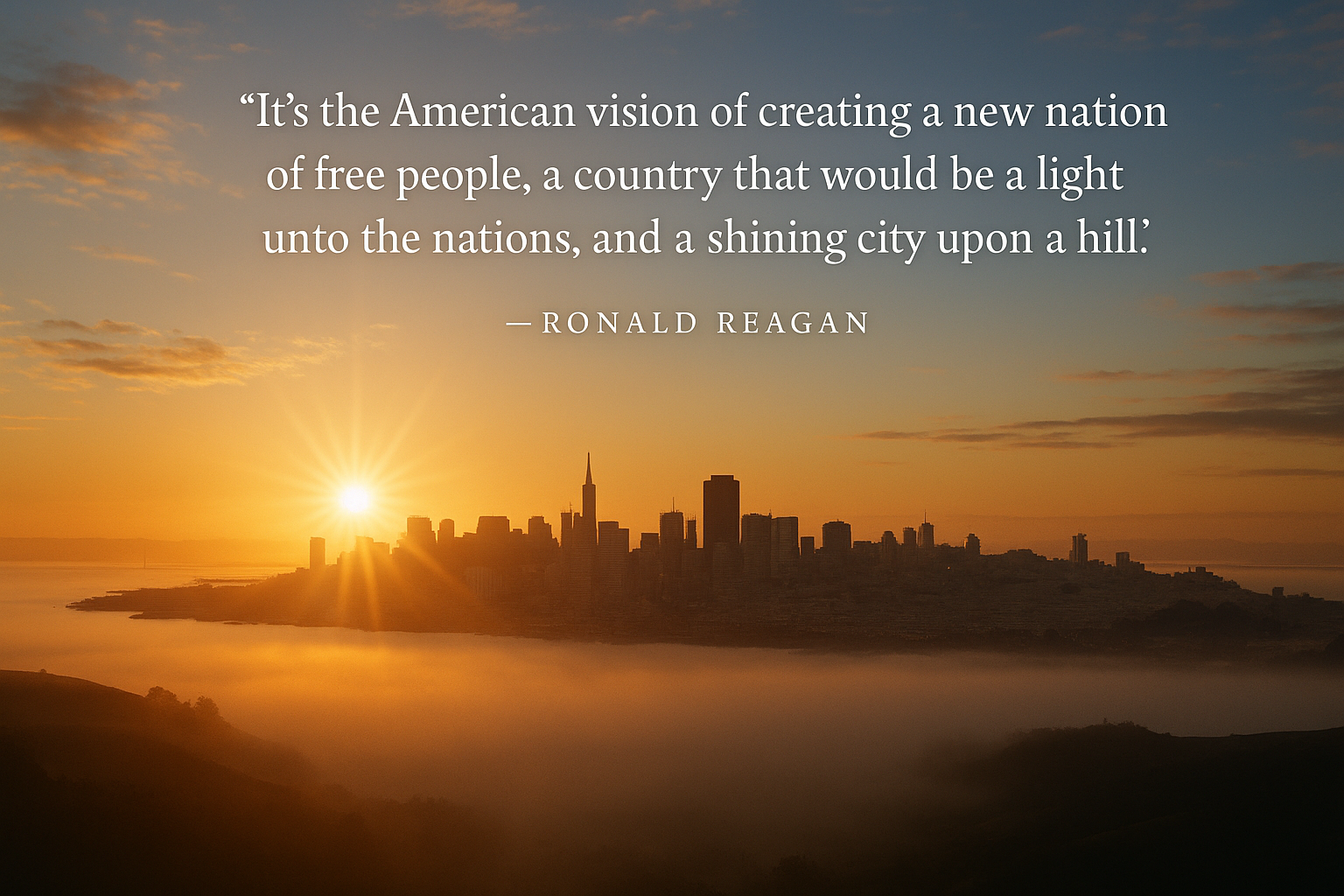There comes a point in every generation when the country must look itself in the mirror and ask a fundamental question: Who are we? The answer cannot be found by endlessly re-litigating the sins of yesterday, nor by scapegoating opponents for the challenges of today. The answer must come from a forward-looking vision—one rooted in unity, not division; in progress, not paralysis; in courage, not cynicism.
Too many of our elected officials are trapped in the politics of the rearview mirror. They drag the nation back into endless debates over bygone eras, invoking ghosts of the past not to learn from history but to weaponize it against their rivals. These rhetorical battles may win applause in echo chambers, but they leave the rest of America feeling abandoned. Citizens struggling to pay bills, send their kids to decent schools, or simply feel safe walking down the street hear leaders reciting century-old grievances instead of charting a course for the future.
The problem is not that history is unimportant. It is. The problem is that some leaders use history as a cudgel rather than as a compass. They see the past as a political weapon rather than a source of wisdom. This leaves the nation stuck in quicksand: unable to move forward, unable to rise above, and unable to provide the moral leadership the world once expected from the United States.
The results of this backward gaze are plain to see. America is more divided than ever. The divides are not just between left and right, but between urban and rural, wealthy and working-class, young and old. We are carving ourselves into tribes, each convinced that the other is not simply wrong, but illegitimate.
Our leaders are supposed to model unity. Instead, they often stoke division, rewarding outrage over compromise and social media applause over substantive progress. The world is watching this with alarm. The “American Experiment,” which once inspired freedom movements from Warsaw to Seoul, is now seen abroad as a cautionary tale of dysfunction. Where America was once the standard bearer of democracy, too often we are now the punchline.
What we need is not another politician rehearsing grievances. We need a leader who calls us to our better angels. A leader who can take a fractured nation and point toward a horizon worth walking toward together. We need someone with the courage of Moses, who led his people across the desert, not knowing every answer but knowing the direction. We need someone with the optimism of Reagan, who reminded us that America is that bright shining city on a hill—not because we are perfect, but because we aspire to be better.
The path forward is not to define America by its ugliest chapters. The path forward is to summon the same spirit that defined us at our best. If September 11, 2001, exposed our vulnerability, then September 12 revealed our strength. On that day, Americans were not Democrats or Republicans, Northerners or Southerners, coastal elites or heartland farmers. We were one people, standing shoulder to shoulder, united in grief but also in determination. That unity was not theoretical—it was lived. Neighbors checked in on one another, strangers lined up for blood drives, and young men and women volunteered to serve. The world marveled not just at our resilience, but at our unity.
That is the America we must become again. Not the America of civil wars and recriminations, but the America of shared sacrifice and common purpose.
To get there, we need leaders willing to look forward. Leaders who will champion innovation in education rather than fight over history curricula. Leaders who will invest in the future of American workers rather than score points with culture-war soundbites. Leaders who will confront global challenges with confidence rather than retreat into self-loathing or nostalgia.
America’s promise has always been rooted in the future. We doubled life expectancy in barely a century. We built the most dynamic economy the world has ever seen. We put men on the moon. We led the fight against tyranny abroad. None of these achievements came from leaders mired in bitterness. They came from leaders who dared to imagine what was possible.
Today’s challenges—artificial intelligence, climate adaptation, global security, economic transformation—demand the same boldness. They demand leaders who recognize that history provides lessons, but not excuses. They demand a politics that unites, not divides.
Never forget: the whole world is watching. Nations that once looked to America as the beacon of freedom now question whether we can govern ourselves. Adversaries exploit our divisions; allies fear our unreliability. If we cannot demonstrate unity at home, how can we credibly promote democracy abroad?
This is why our moment is so consequential. The world is not waiting for America to rediscover itself. Other powers are eager to fill the vacuum. Our dysfunction is their opportunity. To preserve the promise of the “American Experiment,” we must show the world that democracy can still work, that liberty can still flourish, and that America can still lead.
The task before us is urgent but not impossible. America has stumbled before and risen stronger. We can do so again. But it will not happen if our leaders cling to the past like a security blanket. It will not happen if we define ourselves by division.
It will happen when a leader calls us not to what we have been, but to what we can be. It will happen when we remember the unity of September 12, 2001. It will happen when we embrace the vision of America as a shining city on a hill.
The question remains: who are we? The answer must be: We are one people, committed to a brighter tomorrow, determined to lead ourselves and the world toward that light.

